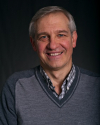- Autumn 2019
Syllabus Description:
Physics 576 Fall 2019
|
Radiation: Sources, Detectors and Safety Prof. Alejandro Garcia (agarcia3@uw.edu)
Office hours: Garcia: to be announced; |
|
Schedule
|
|
Lectures
T-Th 6:30-8:20
NPL conference room
This is a class on Radiation: Sources, Detection, and Safety. Students will learn some basic concepts on nuclear physics; the processes that can produce radioactivity and to recognize dangerous versus safe environments; practical experience with high-resolution photon detectors; the basics of particle accelerators and practical experience with our own tadem accelerator; the basics of Rutherford scattering and how it can be used to identify minute amounts of contaminants; the basics of the functioning of nuclear reactors; and some concepts on nuclear astrophysics.
I hope you find this course stimulating and interesting.
I will expect you to read the material that will be covered in a class ahead of time. I expect students to ask on average one question per class. Students will ask the question during lecture and will then send an electronic note to the instructor to register the question. The questions will be posted by the instructor anonymously but so that others may have a reminder of what issues were considered.
| date | lecture | readings | instructor | Lab |
| Sep. 26th | The atomic nucleus. Basic nuclear physics. Nuclear energy. Orders of magnitudes. | Week 1 | Garcia | None |
| Oct. 1st | Attenuation of photon radiation. Solid state detectors. Ge and Si. | Week 2 | Garcia | Lab: Ge detectors; Deciphering the gamma mystery spectrum. Group A: Tuesday; Group B: Thursday. |
| Oct. 8th | Ranges of ions and electrons. Radioactivity and radiation damage and health risks: Alpha, beta, gamma activity and neutrons. | Week 3 | Garcia/Will | Lab: radiation detectors; photons, electrons, alpha, neutrons. Altogether on Tuesday. |
| Oct. 15th | Tuesday: Counting statistics. Thursday: CENPA tour. | Week 4 | Garcia | CENPA tour: altogether on Thursday. |
| Oct. 22nd | Functioning of accelerators. Tuning beam through our own accelerator. | Week 5 | Smith/Garcia | Accelerator I. Both, group A and B, on Thursday. |
| Oct. 29th | Rutherford scattering. Deciphering the mystery spectrum and the contents of the mystery foil. | Week 6 | Garcia/Smith/Dodson | Lab group A: Rutherford scattering, Thursday 6:30-9:00PM |
| Nov. 5th | Fission and fusion. The functionning of reactors. Rutherford scattering lab session for group B. Deadline for paper subject decision | Week 7
|
Garcia/Dodson | Lab group B: Rutherford scattering, Thursday 6:30-9:00PM. |
| Nov. 12th | Nuclear resonances. Nuclear astrophysics: nucleosythesis in stars. | Week 8 | ||
| Nov. 19th |
Basics of Shell Model. Approximate predictions using simple models. Using quantum numbers and predicting decay rates. Nuclear resonances lab, group B. Boeing visit: postponed. Map |
Week 9 | Garcia/Smith |
Lab group B: (p,g) nuclear resonance. Thursday 6:30-9:00PM. |
| Nov. 26th | Tuesday: Boeing visit; meet Tuesday at 6:45PM at Boeing.Map? | Week 10 | Garcia |
Tuesday: Boeing visit; meet Tuesday at 6:45PM at Boeing.Map? Thanksgiving holiday: Nov.28-29. |
| Dec. 3rd | Searching for new physics with 6He. Lecture on Thursday, Dec. 5th. | Week 11 | Garcia | Lab group A: (p,g) nuclear resonance. Tuesday 6:30-9:00PM. |
| Deadline for paper: Dec. 6th |
Grading Policy
Grading of lab practices reports done using the follwing grid:
| Presentation: | 10 Points |
| Practice procedure description and answering practice-guide questions: |
20 Points |
| Data: | 10 Points |
| Analysis: | 10 Points |
| Conclusions: | 10 Points |
The final course grade is based on a paper that students will write, on the lab practices and quizzes grades, and on class participation using the grid:
| Practice reports and quizzes: | 20 Points |
| Paper: | 20 Points |
| Class participation: | 10 Points |
For information about texts, grading see COURSE INFORMATION (which is also on the "Pages" link).
For useful links and latest news on particle physics see USEFUL LINKS & IN THE NEWS. Please email suggestions.
Here is the the tentative schedule. Readings for each lecture are noted---class quizzes will assume these readings.
